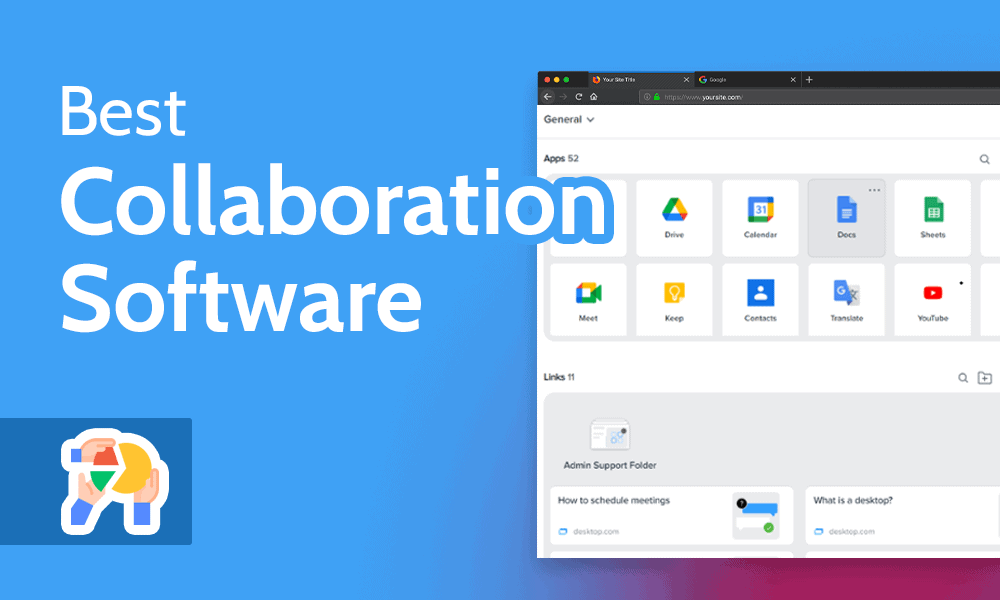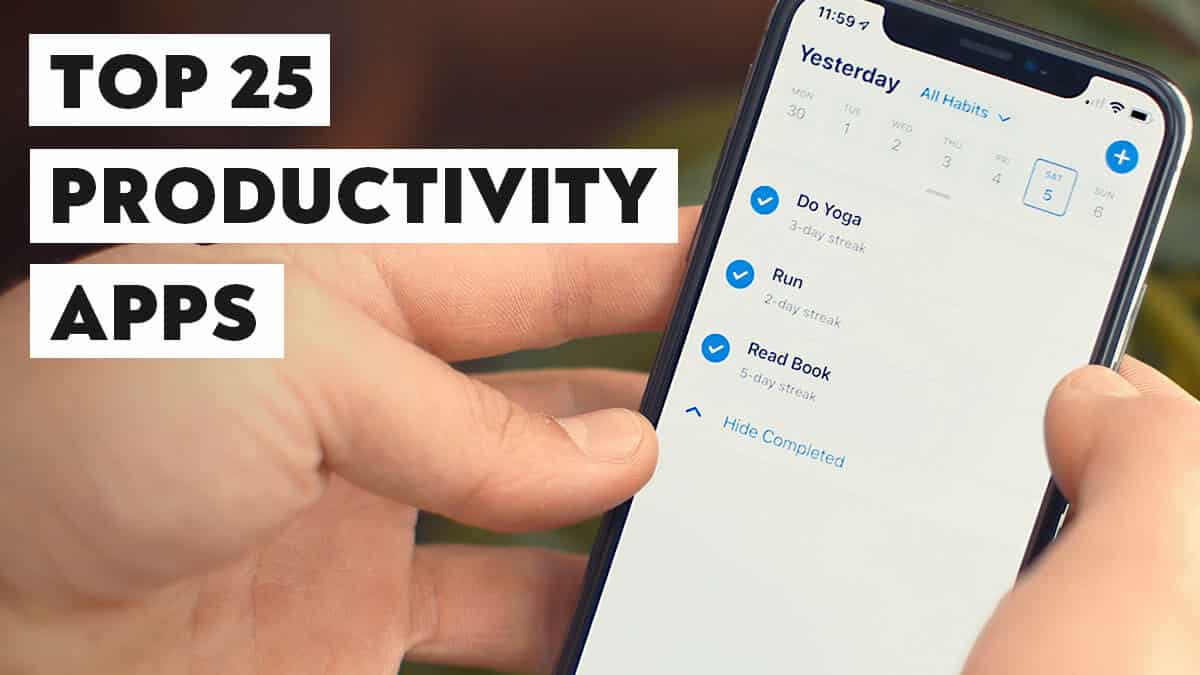As Best productivity apps for collaboration takes center stage, this opening passage beckons readers with semrush author style into a world crafted with good knowledge, ensuring a reading experience that is both absorbing and distinctly original.
Collaboration is the lifeblood of modern workplaces, and productivity apps are essential tools for enhancing teamwork and efficiency. This guide explores the key features of collaboration apps, compares popular options, and provides tips for choosing the best app for your needs.
Introduction
Collaboration is essential in today’s workplace, enabling teams to share ideas, work together on projects, and achieve common goals. Productivity apps can enhance collaboration by providing tools for communication, file sharing, task management, and more.
These apps streamline collaboration processes, reduce communication barriers, and improve team efficiency. By leveraging the right productivity apps, teams can work seamlessly, stay organized, and achieve greater results.
Features of Productivity Apps for Collaboration
Productivity apps for collaboration typically offer a range of features to support team communication and productivity, including:
- Communication tools:Instant messaging, video conferencing, and file sharing to facilitate real-time communication and information exchange.
- Task management:Assigning tasks, setting deadlines, and tracking progress to ensure timely completion of projects.
- Document collaboration:Co-editing documents, spreadsheets, and presentations, allowing multiple users to work on the same file simultaneously.
- Project management:Centralizing project information, tracking progress, and managing resources to streamline project execution.
- Calendar and scheduling:Scheduling meetings, appointments, and events to coordinate team activities and avoid conflicts.
Key Features of Collaboration Productivity Apps

Effective collaboration requires tools that facilitate seamless communication, task management, and file sharing. Here are the essential features to look for in collaboration productivity apps:
Real-Time Editing
Real-time editing allows multiple users to work on the same document simultaneously, ensuring everyone has the most up-to-date information. This feature eliminates the need for version control and reduces the risk of conflicts or data loss.
File Sharing
Centralized file storage and sharing capabilities make it easy for team members to access and collaborate on shared files. Features such as file versioning, permissions management, and file search help maintain file organization and ensure secure access to relevant documents.
Task Management
Integrated task management tools allow teams to assign, track, and prioritize tasks. Features like task lists, deadlines, and progress tracking help teams stay organized, avoid overlaps, and ensure timely project completion.
Communication Tools, Best productivity apps for collaboration
In-app communication tools, such as instant messaging, video conferencing, and threaded discussions, enable real-time communication and feedback. These tools facilitate quick and efficient information exchange, reducing the need for external communication channels.
Popular Productivity Apps for Collaboration

Collaboration is key to success in today’s business world. The right productivity apps can help teams work together more efficiently and effectively. Here are some of the most popular productivity apps for collaboration:
When choosing a productivity app for collaboration, it is important to consider the following factors:
- The size of your team
- The types of projects you work on
- Your budget
- Your team’s preferences
Once you have considered these factors, you can start to narrow down your options. Here is a table that compares and contrasts some of the most popular productivity apps for collaboration:
| App Name | Key Features | Pricing | User Reviews |
|---|---|---|---|
| Asana | Task management, project management, file sharing, communication | Free plan available; paid plans start at $10.99 per user per month | 4.5 stars on G2 |
| Trello | Task management, project management, file sharing, communication | Free plan available; paid plans start at $10 per user per month | 4.5 stars on G2 |
| Slack | Communication, file sharing, task management | Free plan available; paid plans start at $6.67 per user per month | 4.5 stars on G2 |
| Microsoft Teams | Communication, file sharing, task management, project management | Free plan available; paid plans start at $5 per user per month | 4 stars on G2 |
Asana is a great option for teams that need a powerful task and project management tool. It offers a wide range of features, including task lists, project boards, file sharing, and communication tools. Asana is also highly customizable, so you can tailor it to fit your team’s specific needs.
Trello is another popular option for teams that need a flexible and visual way to manage their work. Trello uses a看板system to organize tasks, projects, and files. This makes it easy to see what everyone is working on and where projects stand.
Slack is a great option for teams that need a real-time communication tool. Slack allows you to send messages, share files, and make voice and video calls. Slack also integrates with a wide range of other productivity apps, making it a great choice for teams that use multiple tools.
Microsoft Teams is a good option for teams that need a comprehensive productivity suite. Microsoft Teams includes a variety of features, including communication, file sharing, task management, and project management. Microsoft Teams also integrates with other Microsoft products, such as Office 365 and SharePoint.
Benefits of Using Productivity Apps for Collaboration

Integrating productivity apps into your collaborative workflow can yield significant benefits, fostering enhanced communication, boosting efficiency, and empowering seamless teamwork. These tools provide a centralized platform for seamless information sharing, task management, and real-time collaboration, enabling teams to streamline their processes and execute projects with greater success.
For instance, by leveraging instant messaging and video conferencing features, teams can engage in real-time discussions, resolve queries swiftly, and maintain open lines of communication. Furthermore, task management tools empower teams to assign tasks, track progress, and monitor deadlines, ensuring that everyone is on the same page and working towards shared objectives.
Improved Communication
- Facilitate real-time communication through instant messaging, video conferencing, and file sharing.
- Provide a central repository for project-related discussions, eliminating the need for scattered email chains and ensuring that all team members are kept informed.
- Foster a culture of transparency and open communication, promoting idea-sharing and knowledge transfer.
Increased Efficiency
- Streamline workflows by automating repetitive tasks, such as scheduling meetings, sending reminders, and tracking project progress.
- Enable seamless file sharing and version control, eliminating confusion and ensuring that everyone has access to the latest project materials.
- Improve task management by assigning tasks, setting deadlines, and monitoring progress, ensuring that projects stay on track and are completed on time.
Enhanced Teamwork
- Promote a sense of shared ownership and responsibility, fostering a collaborative environment where team members work together towards common goals.
- Facilitate knowledge sharing and cross-functional collaboration, breaking down silos and encouraging innovation.
- Empower remote teams to work effectively together, regardless of their geographical location, enabling seamless collaboration across time zones.
Tips for Choosing the Best Productivity App for Collaboration
Selecting the optimal productivity app for collaboration requires careful evaluation and consideration of specific needs. Factors such as team size, industry, and budget play a crucial role in determining the most suitable solution.
To make an informed decision, consider the following key factors:
- Team size:Smaller teams may require simpler apps with basic features, while larger teams benefit from more robust platforms offering advanced collaboration tools.
- Industry:Specialized industries often have unique collaboration requirements. Consider apps designed specifically for your industry’s workflows and needs.
- Budget:Determine a realistic budget for the app and consider both subscription fees and potential additional costs for integrations or premium features.
- Integration capabilities:Ensure the app integrates seamlessly with existing tools and systems to avoid data silos and streamline workflows.
- Security:Prioritize apps that offer robust security measures to protect sensitive data and comply with industry regulations.
- User experience:Choose apps with intuitive interfaces and user-friendly designs to enhance adoption and collaboration efficiency.
Last Recap
In the ever-evolving landscape of collaboration, productivity apps stand as indispensable tools, empowering teams to achieve more, communicate effectively, and deliver exceptional results. By embracing the right app, businesses can unlock the full potential of collaboration and drive success in today’s competitive environment.
FAQ Guide: Best Productivity Apps For Collaboration
What are the key features to look for in collaboration apps?
Essential features include real-time editing, file sharing, task management, and communication tools, which facilitate seamless collaboration and efficient project execution.
How can productivity apps improve collaboration?
Productivity apps streamline communication, increase efficiency, and enhance teamwork by providing centralized platforms for sharing ideas, tracking progress, and managing tasks.
What factors should be considered when choosing a collaboration app?
Consider factors such as team size, industry, budget, and specific collaboration needs to make an informed decision and select the app that best aligns with your requirements.